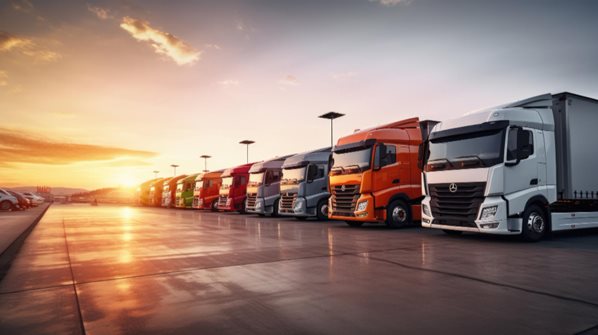
What sets great logistics companies apart in today’s fast-paced world? It’s no longer just about moving goods from one place to another, it’s about delivering exceptional customer experiences at every step.
As global supply chains grow more complex and consumer expectations continue to rise, the logistics industry must adapt quickly.
Technology, proactive communication, and personalization have emerged as game-changing strategies, helping companies build trust, improve efficiency, and stand out in a competitive market. Let’s explore how these elements are reshaping customer service in logistics and paving the way for a smarter, more responsive future.
How Technology Keeps Customers in the Loop Like Never Before
In the logistics industry, real-time tracking has become a cornerstone of customer satisfaction. Modern customers expect to know where their orders are at all times, and real-time tracking systems provide this visibility, allowing them to monitor their shipments’ progress and receive accurate estimated times of arrival. This transparency not only reduces uncertainty but also enhances trust between customers and logistics providers.
Complementing real-time tracking, the adoption of AI-driven chatbots has revolutionized customer service in logistics. These intelligent systems handle a significant volume of customer inquiries efficiently, providing instant responses to common questions and facilitating tasks such as order tracking and scheduling.
Notably, 68% of customers have used a chatbot for a customer service experience, and 47% are open to purchasing products through a chatbot, highlighting their growing acceptance and effectiveness. By integrating chatbots, logistics companies can offer 24/7 support, reduce response times, and free human agents to focus on more complex issues, enhancing overall customer satisfaction.
Keeping Customers Happy with Better Communication
Effective communication is a cornerstone of customer satisfaction in logistics. Proactive communication, such as timely updates on shipment status and potential delays, fosters transparency and trust between businesses and customers. Companies like Amazon have set industry standards by providing notifications at every stage of the delivery process, converting waiting periods into active engagement and enhancing the overall customer experience.
Responsive customer support is equally vital. Addressing inquiries and concerns promptly through accessible channels (such as phone, email, and chat) ensures that customers feel heard and valued. This approach not only resolves issues efficiently but also strengthens customer loyalty. In the digital age, exceptional service is a strategic investment that can lead to positive word-of-mouth and a strong reputation.
Why Personalization is the New Secret to Success
Personalization has become a pivotal strategy in the logistics industry, directly influencing customer satisfaction and loyalty. A significant 66% of consumers expect brands to understand their individual needs, and 71% feel frustrated when experiences lack personalization. This expectation compels logistics companies to tailor their services, such as offering flexible delivery options and customized shipping solutions, to meet diverse customer requirements.
The impact of personalization extends to purchasing behavior, with 76% of consumers more likely to buy from companies that provide tailored experiences. Moreover, 78% are inclined to recommend such brands to others, underscoring the role of personalized service in fostering customer loyalty and advocacy.
By leveraging customer data and advanced analytics, logistics firms can deliver personalized interactions that enhance the customer experience, leading to increased retention and a stronger competitive position in the market.

The Big Challenges Facing Logistics Customer Service
The logistics industry is grappling with significant challenges that directly impact customer service. One major issue is the high rate of delivery failures, with up to 8% of domestic first-time deliveries failing, costing retailers an average of $17.20 per order, which can amount to $197,730 annually. These failures not only escalate operational costs but also lead to customer dissatisfaction due to delays and unmet expectations.
In addition to customer service challenges, logistics companies must also address legal risks such as truck accidents, which can lead to significant liabilities. Collaborating with experienced truck accident lawyers ensures these issues are handled professionally, minimizing operational disruptions.
Another pressing challenge is the persistent labor shortage within the logistics sector. The industry is expected to grow to approximately $171.9 billion by 2027, necessitating a 4.6% increase in workforce.
However, attracting and retaining skilled workers remains difficult, especially as younger workers prioritize work-life balance and may not view logistics as a lucrative career path. This shortage strains existing staff and hampers the industry’s ability to meet customer demands efficiently, ultimately affecting service quality and customer satisfaction.
The Perfect Blend – Balancing Tech with the Human Touch
In the logistics sector, while technology streamlines operations, the human element remains indispensable for delivering exceptional customer service. A 2022 survey revealed that 86% of U.S. consumers consider direct interaction with a real person important when communicating with businesses. This preference underscores the necessity for logistics companies to balance automated systems with accessible human support, ensuring personalized and empathetic customer interactions.
Human involvement is crucial for navigating complex logistical challenges that automated systems may not fully address. The ability of human representatives to adapt to unforeseen circumstances and provide tailored solutions fosters trust and loyalty among customers. By integrating technological efficiencies with the irreplaceable human touch, logistics companies can enhance customer satisfaction and maintain a competitive edge in an increasingly automated industry.
How Logistics Companies Are Making Customer Service More Sustainable
Logistics companies are increasingly adopting sustainable practices to reduce their environmental impact and meet growing consumer demand for eco-friendly operations. For instance, DHL Group aims to cut its greenhouse gas emissions from 39 million to under 29 million tonnes by 2030, focusing on sustainable air transportation solutions. Similarly, IKEA is decarbonizing its transport operations by shifting from road to rail and increasing the use of biofuels like hydrotreated vegetable oil.
These green initiatives not only benefit the environment but also enhance customer service. By optimizing transportation routes and adopting fuel-efficient vehicles, companies can reduce delivery times and costs, leading to improved customer satisfaction.
A NielsenIQ survey found that 73% of global consumers are willing to change their consumption habits to align with environmental sustainability, indicating that customers are more likely to support businesses committed to green logistics. Therefore, integrating sustainable practices into logistics operations addresses environmental concerns and meets customer expectations for responsible business conduct.
The Future of Customer Service in Logistics
The logistics industry is on the cusp of a technological revolution, with emerging innovations poised to transform customer service. AI is at the forefront, enabling predictive analytics for demand forecasting and route optimization, which enhances efficiency and reduces delays. AI-powered chatbots are also improving customer interactions by providing instant, personalized responses to inquiries.
Blockchain technology is another game-changer, offering transparent and secure tracking of goods throughout the supply chain. This transparency builds trust and allows customers to monitor their shipments in real-time.
The Internet of Things (IoT) facilitates real-time monitoring of vehicle locations and conditions, enabling proactive issue resolution and timely updates to customers. As these technologies continue to integrate, the future of customer service in logistics will be characterized by greater transparency, efficiency, and responsiveness.
Conclusion
How can logistics companies stay competitive in an era of rising customer expectations and technological advancements? By embracing innovation, prioritizing proactive communication, and offering personalized solutions, businesses can meet and exceed customer demands.
Balancing cutting-edge technology with the irreplaceable human touch ensures flexibility and responsiveness, even in challenging situations. As sustainability becomes a customer priority and emerging technologies like AI, IoT, and blockchain redefine the industry, logistics providers have an opportunity to lead with transparency, efficiency, and customer-centric strategies. The future of logistics customer service lies in adapting to these shifts while staying committed to building trust and delivering value.




